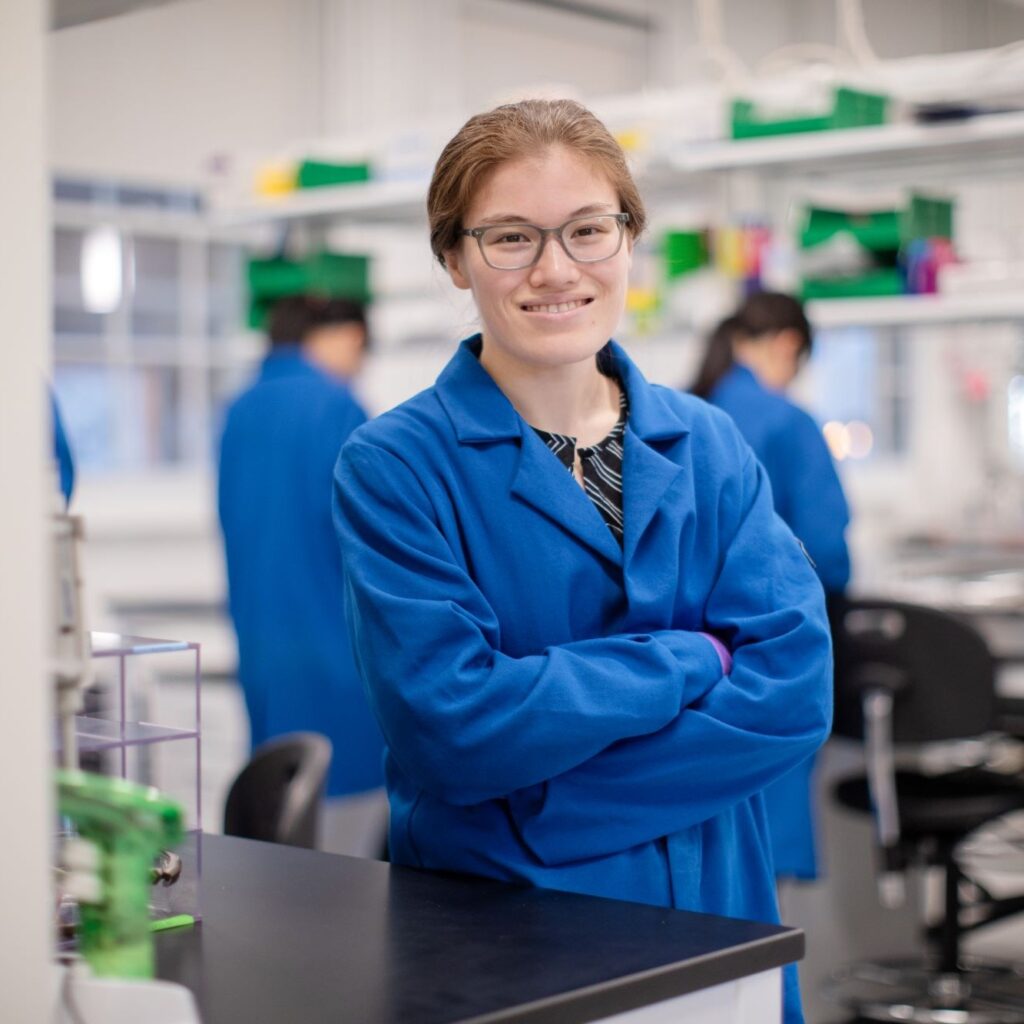News & Stories
Explore the latest news, stories, and groundbreaking research happening at the Institute of Biomedical Engineering. Stay updated on innovative projects, impactful discoveries, and the achievements of our talented students, faculty, and alumni shaping the future of biomedical science and engineering.
Quick Navigation
Professor Milica Radisic featured in CBC news
Professor Milica Radisic has recently been featured in CBC News for her pioneering work in bioengineering and personalized medicine. With a focus on organ on a chip, these lab-grown models using a patient’s own cells to simulate organ function and tumor response. These devices offer a promising alternative to traditional drug testing methods, potentially improving the accuracy of cancer treatment predictions and reducing reliance on animal testing.
Two BME Professors Awarded Canadian Foundation for Innovation Funding
Professors Aereas Aung and Freeman Lan from the Institute of Biomedical Engineering have been awarded funding from the Canada Foundation for Innovation’s John R. Evans Leaders Fund in recognition of their innovative research in vaccine development and microbiome analysis.
Professor Tom Chau inducted into the Canadian Disability Hall of Fame
Professor Tom Chau, a leading innovator in pediatric rehabilitation and assistive technology, has been inducted into the Canadian Disability Hall of Fame in the Builder category at the 32nd Annual Induction Luncheon held in Toronto today.
Professor Milos Popovic honoured with Dejan B. Popovic award at IFESS conference
On September 17th, Professor Milos Popovic has been awarded the prestigious Dejan B. Popovic Award at the annual conference of the International Functional Electrical Stimulation Society (IFESS), held in Vienna. This award recognizes exceptional contributions to the field of electrical stimulation technologies, with a particular emphasis on translating research into clinical practice and industry impact.
Five Mastercard Foundation Scholars Join University of Toronto’s Institute of Biomedical Engineering This Fall
Five Mastercard Foundation Scholars Join University of Toronto’s Institute of Biomedical Engineering This Fall The University of Toronto’s Institute of Biomedical Engineering (BME) is proud to welcome five exceptional Mastercard […]
Dr. Noor Abu Jarad awarded a Banting Postdoctoral Fellowship
Dr. Noor Abu Jarad awarded a Banting Postdoctoral Fellowship Dr. Noor Abu Jarad has been awarded a Banting Postdoctoral Fellowship, one of Canada’s most prestigious postdoctoral awards. The Banting Postdoctoral […]
Professor Milica Radisic elected fellow of the Canadian Academy of Health Sciences
Professor Milica Radisic (BME, ChemE) has been elected a fellow of the Canadian Academy of Health Sciences (CAHS), one of Canada’s three national academies. The CAHS leverages the expertise of Canada’s leading health sciences researchers to evaluate our most urgent and complex health challenges and recommend solutions. To be named a CAHS Fellow is considered one of the highest distinctions for academics in the health sciences in Canada.
AI tool improves accuracy and efficiency in microscopy image analysis
AI tool improves accuracy and efficiency in microscopy image analysis Professor Rodrigo Fernandez-Gonzalez (pictured middle) at the University of Toronto’s Institute of Biomedical Engineering (BME) have developed a new artificial […]
iBEAM 2025: Biomedical Engineering in Action
Join us for a glimpse into iBEAM 2025, a hands-on biomedical engineering workshop hosted by the Institute of Biomedical Engineering (BME) at the University of Toronto in partnership with the U of T Enrichment Academy. Over two days, students explored nanotechnology, biomaterials, and tissue engineering through interactive lab activities led by Drs. Penney Gilbert and Lindsey Fiddes. From gold nanoparticles to engineered pancreas tissue, this initiative empowers high school students from underrepresented communities to discover the possibilities of science and innovation.
Revolutionizing Heart Health: Inside the Franklin Lab at U of T
Discover how the Franklin Research Lab at the University of Toronto is transforming cardiac care through cutting-edge bioelectronic and biophotonic devices. Led by Professor Daniel Franklin, the lab is developing wearable technologies, wireless implants, and smart materials that go beyond traditional health metrics, as they bring innovative solutions from the lab to real patients.
Swallowable sensor offers simpler way to monitor gut inflammation
Swallowable sensor offers simpler way to monitor gut inflammation Researchers at the University of Toronto, Mass General Brigham and Harvard Medical School have developed a swallowable, low-cost device that changes colour […]























